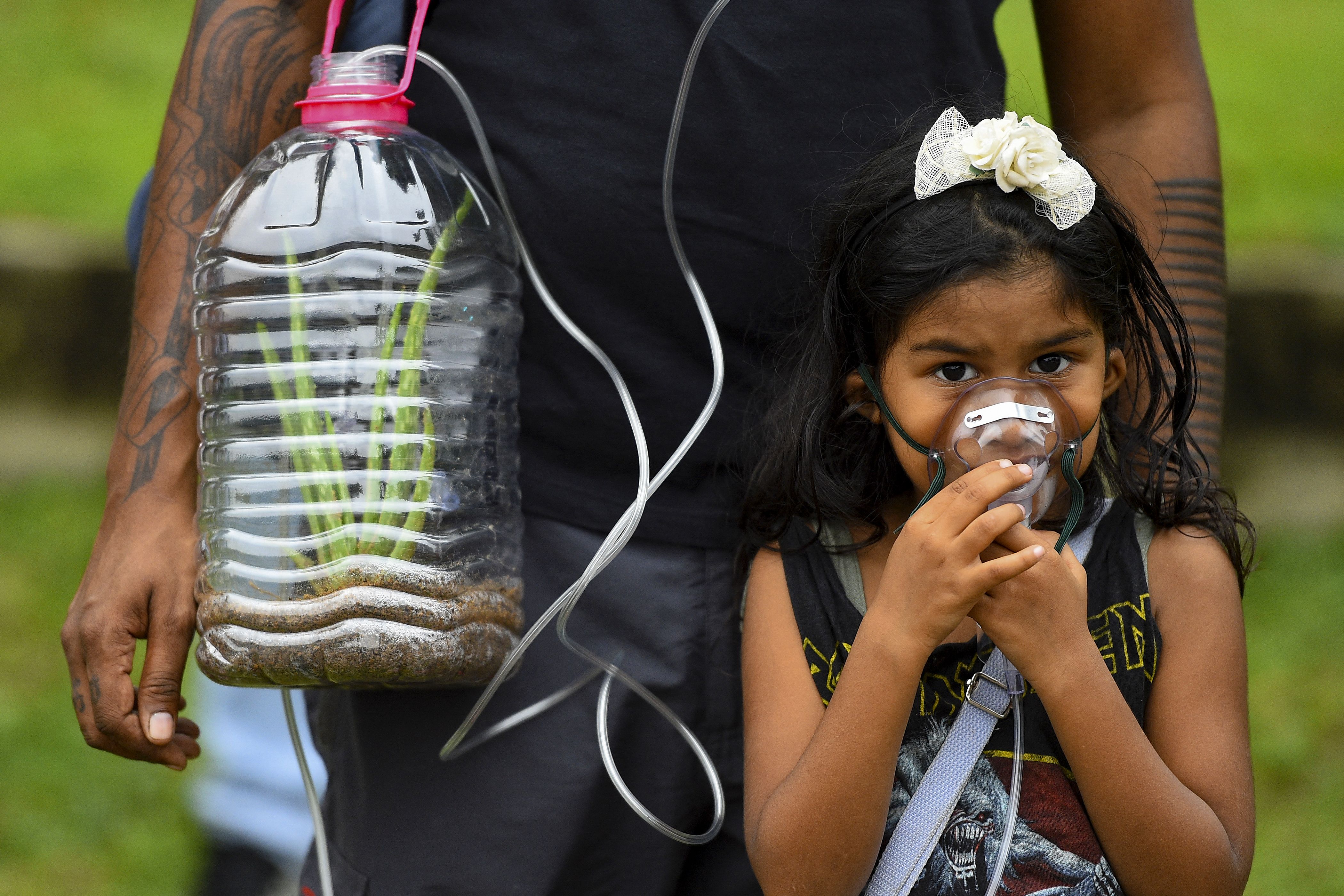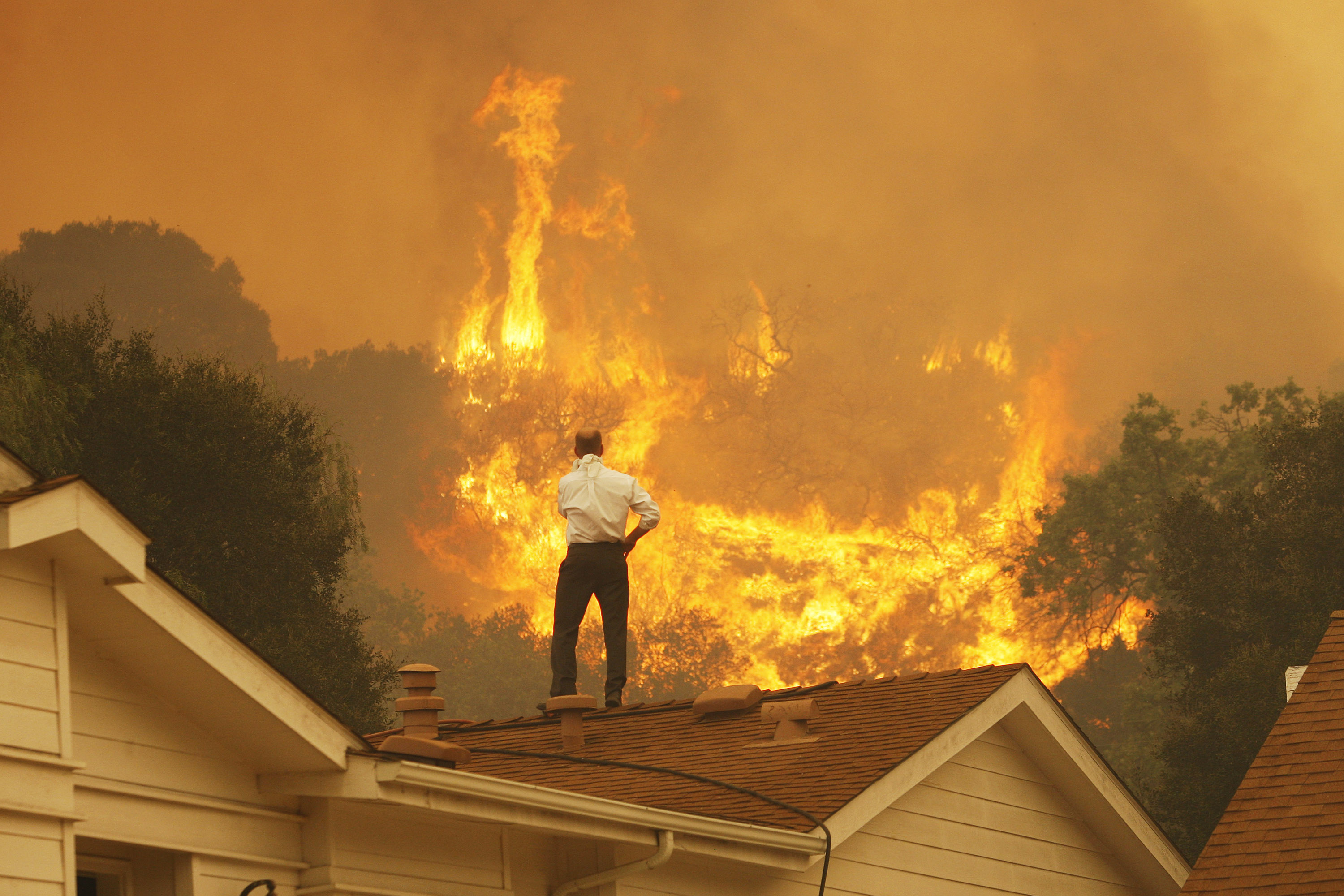Powerful individuals behind the most devastating assaults on the environment could be put in the dock under a new legal definition of “ecocide” that a heavyweight panel of international lawyers and hardened campaigners hope will revolutionise the fight against the climate crisis.
The aim is to treat ecocide – the mass destruction of the environment – like genocide, crimes against humanity and other atrocities of international standing, holding world leaders and corporate chiefs criminally responsible for ecological disasters. With the world teetering on the brink of climate catastrophe, the expert panel is poised to publish its core text defining the draft law on Tuesday, following months of debate and deliberation.
Videos by VICE
While the panel’s members have kept details of the proposed, highly-anticipated law under wraps, a leader of the ecocide campaign has given the strongest hint yet of its text and the bold principle that underpins it: “200 words to protect the future of life on Earth”.
“The idea is for it to be a no-brainer,” Jojo Mehta, chair of the Stop Ecocide Foundation which commissioned the panel, told VICE World News. “It’s short. It needs to be understandable. The very last words are literally in final tweaking right now.”

The draft law will outline the consequences of this ecological crime, not specific examples of it. “We don’t know what ecocidal nonsense someone will dream up,” added Mehta. “If the law’s too precise, it won’t be future-proof.”
In the same way that war criminals are tried, the aim is to prosecute corporate and governmental decision-makers through the International Criminal Court (ICC) — whether at its base in The Hague or in any ratifying jurisdiction — for funding, permitting or causing egregious environmental abuses through oil drilling, mass deforestation, industrial mining, rampant over-fishing and so on.
This growing movement has been gaining traction since 2019 when two small island nations at risk from rising sea levels — Vanuatu in the Pacific and the Maldives in the Indian Ocean — demanded “serious consideration” of the legally-enforceable crime of ecocide. High-profile figures such as Pope Francis, Greta Thunberg and Dr Jane Goodall have endorsed the proposal while French President Emmanuel Macron pledged last year to champion its recognition on the international stage.
The origins of the campaign can be traced back to 1970 when an American botanist, Arthur Galston, devised the term ecocide to condemn the horrific effects of Agent Orange which US military aircraft sprayed on the forests of Vietnam, Cambodia. and Laos. The primary goal of releasing millions of gallons of this and other powerful, defoliating herbicides was to remove cover for guerrilla fighters, but it also caused cancers, horrific birth defects and the decimation of wildlife.

Two years later, Sweden’s prime minister made an early, prominent call to outlaw ecocide at the UN’s first major summit on the environment, although the idea largely fell on deaf ears.
More recently, however, top government ministers in Belgium, Finland and Luxembourg have publicly thrown their weight behind this movement — boosted further in May by the European Parliament’s foreign affairs committee which urged EU member states “to take a bold initiative” and recognise ecocide as an international crime. Political parties in Holland, Portugal, Spain, Sweden and the UK have also backed these calls.
But before the ICC’s charter, the Rome Statute, can be amended to include ecocide, the crime must be defined and demarcated. So an expert drafting panel was launched last November, 75 years after “crimes against humanity” and “genocide” were used at the Nuremberg Trials of high-ranking Nazis.
Yet despite counting a former ICC judge and UN prosecutor among the panel’s illustrious members, the process has not been easy.

“Practically it’s very difficult,” Professor Philippe Sands, a renowned barrister who co-chairs the panel, told VICE World News in a phone interview. “At what point does an act that causes harm to the environment cross the line that we consider it should be seen internationally as a crime? Who are the international criminals in relation to the climate system when each and every one of us contributes? Who do you single out as the climate criminal? That is the nub of the challenge — and it’s a tough challenge.”
Despite these difficulties, their mission has been spurred on by the urgency of tackling the threats posed by a heating planet.
“We are facing a global climate and biodiversity crisis,” said Mehta. “Although there’s plenty of environmental law in the world, very little of it acts as an enforceable deterrent, particularly for larger corporations. We see this law like an acupuncture needle; you hit that pressure point and you really galvanise change in the system. The time is right for this.”
From Congolese militia leaders to Sahel jihadists and Janjaweed commanders, the ICC has typically gone after war criminals guilty of rape, torture, indiscriminate killing and other horrific abuses in some of the world’s most infamous conflict zones. Ecocide trials would put another type of offender in the dock: CEOs and top political figures, even heads of state, who sign off on endeavours that ravage the world’s ecosystems.

“We want key decision-makers to sit there and think, ‘My personal freedom is on the line if I make the wrong decision’,” said Mehta.
Once the core text of the law is published tomorrow, a four-stage process can follow.
The first step involves any of the ICC’s 123 member states proposing this amendment to the Rome Statute. Next, a majority at the court’s annual assembly must agree that the amendment can be considered. Following that, a two-thirds majority of all member states must vote to adopt that law into the statute at a special summit; a one-state, one-vote rule allows a small Pacific island to have the same voice as a powerful, industrialised nation.
Finally, each member can then ratify the new law, at which point they must then enforce it in their own country within a year. That last stage would see ecocide become the so-called “fifth crime”, joining genocide, crimes against humanity, war crimes and crimes of aggression as offences prosecutable at the ICC, the latter having been added recently.

This concluding step instills the law with considerable power as it allows any ratifying nation to arrest a non-national on its own soil for an act of ecocide committed elsewhere, thereby extending its reach to US, China and other non-member states and shrinking the space for big polluters to operate. In other words, for example, the CEO of a US company that was committing ecocide in a country such as Uganda could be arrested while visiting its French operational office, so long as France had ratified the crime.
But even at the first step, the mere act of proposing the new law can affect the behaviour of corporations. Given its potential impact down the line, financiers and insurers may start to avoid dangerous investments that could leave a CEO looking like a war criminal. But questions remain on the likelihood of the legal text ever becoming law.
“When push comes to shove. do governments really want to do this?” said Sands. “It may be that governments are lagging slightly behind but plainly there is something going on. It will happen one day.”
The push towards enshrining ecocide in law is one of a range of emerging legal approaches to defend the natural world — alongside championing the human right to a healthy environment, convincing banks to stop financing destructive industries, and passing “rights-of-nature” legislation which recognises ecosystems’ right to exist as living beings that can be named as injured parties in litigation.
Many of these new approaches draw on age-old, eco-friendly principles espoused by indigenous communities who have long seen the living world as a network of intertwined relationships — in which humans are just one part. Ideas around ecocide and the rights of nature emphasise the holistic connections shared between people and the planet as a whole, while rejecting the human-focused underpinning of conventional law.
“It is going to be very hard to break away from that,” said Sands, who also teaches law at University College London. “It’s a long game but plainly something is happening that teaches us to recognise – as indigenous communities in South America and Africa have – that nature has a place and importance of its own.”
Another key question is whether this law can be passed in time. The climate continues to heat up alongside a critical loss of habitats and biodiversity, all undermining the health of ecosystems and food chains on which human societies depend. Over the last 50 years, experts say that around a third of the world’s forests, half of its coral reefs and 85% of its wetlands have been destroyed, decimating wildlife populations.
Making ecocide an arrestable crime holds great promise, striking at the heart of corporate immunity. The new law cannot come fast enough; others fear it could be too late.
“International change comes in the face of catastrophe,” said Sands. “I worry about the capacity for people to change the legal order short of catastrophe. This pandemic may be very significant as it’s caused us to recognise our own frailties, our interconnectedness. That may be helpful in nudging us towards a greater engagement with the power of nature.”
More
From VICE
-

-

Photo by MANDEL NGAN / AFP. -

Rodrigo Duterte running for president of the Philippines in 2016. (NOEL CELIS/AFP via Getty Images) -

